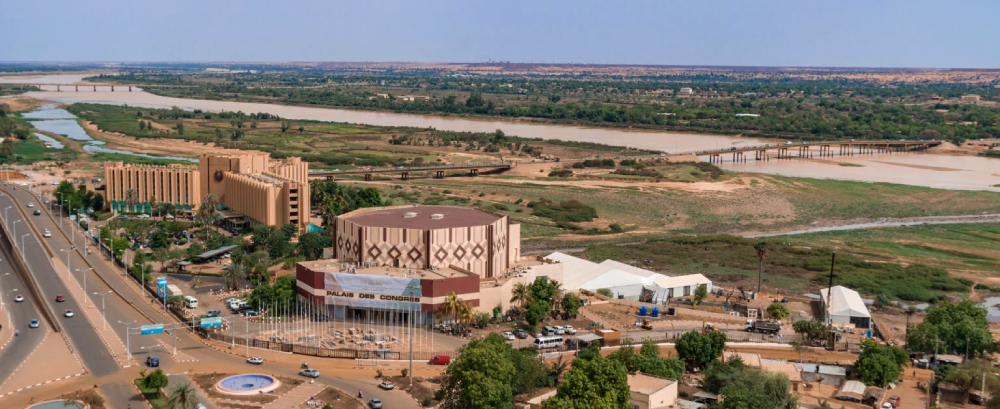
Mauritania
April 13, 2025
Nigeria
April 13, 2025Niger, located in West Africa, is a country rich in mineral resources, particularly uranium. The mining sector is a key contributor to Niger’s economy, providing significant export revenues. The country has a variety of minerals that are essential to its development, although uranium remains the most critical. Here’s an overview of the key mineral resources in Niger:
Key Mineral Resources
Uranium:
Overview: Uranium is the most important mineral resource in Niger, making the country one of the world’s top producers. Uranium mining has been central to Niger’s economy since the 1970s, and it remains the country’s most significant export.
Major Uranium Mines: The main uranium mines in Niger are located in the northern regions, particularly in the Arlit area. Notable mines include the Somaïr and Cominak mines, operated by subsidiaries of the French company Orano (formerly Areva).
Reserves: Niger has substantial uranium reserves, particularly in the Tim Mersoi Basin, ensuring its position as a key player in the global uranium market.
Coal:
Overview: Niger has coal deposits, particularly in the Anou Araren area. The coal is primarily used for electricity generation in the country.
Reserves: The coal reserves in Niger are sufficient to support local energy needs, although they are not as extensive as uranium reserves.
Gold:
Overview: Gold mining is an emerging sector in Niger, with both artisanal and industrial-scale operations. The government has been promoting gold exploration and mining as a means to diversify the economy.
Major Gold Mines: The Samira Hill Gold Mine, operated by Semafo, was the first industrial gold mine in Niger. Other areas with gold potential include the Liptako region near the border with Burkina Faso.
Reserves: Niger’s gold reserves are still being explored, with potential for further discoveries and development.
Phosphates:
Overview: Niger has phosphate deposits, particularly in the Tahoua region. Phosphates are an essential mineral for agriculture.
Reserves: The phosphate reserves in Niger are significant, with potential for development to support both domestic agriculture and export markets.
Gypsum:
Overview: Niger has gypsum deposits, particularly in the southwestern part of the country. Gypsum is used in the construction industry.
Reserves: The gypsum reserves in Niger are adequate to support local construction needs and some export potential.
Coal:
Overview: Niger has coal deposits, particularly in the Anou Araren area. The coal is primarily used for electricity generation in the country.
Reserves: The coal reserves in Niger are sufficient to support local energy needs, although they are not as extensive as uranium reserves.
Iron Ore:
Overview: Niger has iron ore deposits, particularly in the southern part of the country. These deposits are not yet fully developed, but they represent a potential area for future mining activities.
Reserves: The iron ore reserves in Niger are considered significant but are largely unexplored and undeveloped.
Salt:
Overview: Salt has historically been an important resource in Niger, particularly in the northern regions such as Bilma. Salt extraction continues to be an important economic activity in these areas.
Reserves: The salt reserves in Niger are sufficient to meet local demand, with some potential for small-scale export.
Investment and Extraction Situation
- Uranium Mining Dominance: Uranium mining is the backbone of Niger’s mining sector. The country has attracted significant foreign investment, particularly from France, due to its large uranium reserves. The government continues to promote the development of this sector while addressing challenges related to environmental impact and community relations.
- Emerging Gold Sector: Gold mining is a growing sector in Niger, with the government encouraging further exploration and development. This sector offers opportunities for diversification of the economy, reducing reliance on uranium.
- Artisanal and Small-Scale Mining (ASM): ASM is widespread in Niger, particularly in gold mining. While ASM plays a crucial role in local economies, it faces challenges such as lack of formalization, environmental degradation, and safety concerns. The government is working to regulate and formalize these activities to improve sustainability and productivity.
- Infrastructure Challenges: Infrastructure development, such as transportation and energy supply, is crucial for the efficient extraction and export of mineral resources. The government and private sector are working together to improve infrastructure, which is essential for the growth of the mining sector.
Environmental and Social Impact
Mining activities in Niger, particularly uranium mining, have significant environmental and social impacts. Issues such as land degradation, water usage, and the impact on local communities are important considerations. The government and mining companies are under pressure to ensure that mining activities are conducted sustainably and that the benefits are shared more equitably with local communities.


